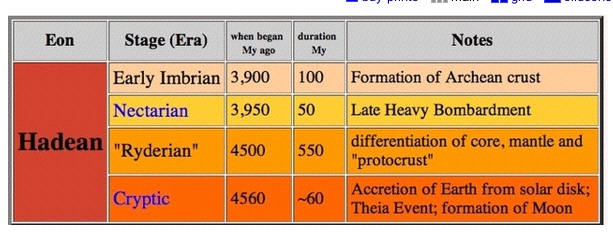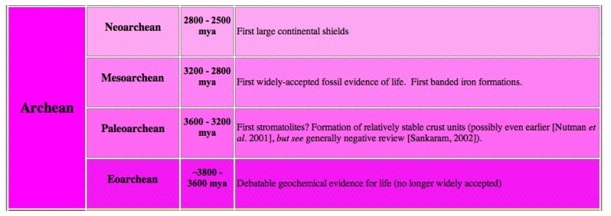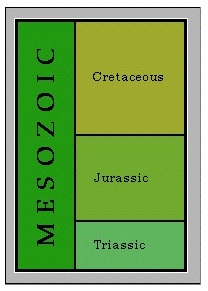C
cupid dave
Guest
The Holy Spirit.
That would be Truth, right?
John 4:24
God is a Spirit:
and they that worship him must worship him in spirit, (of mind) and in truth, (the image of God).
Follow along with the video below to see how to install our site as a web app on your home screen.
Note: This feature may not be available in some browsers.





Join Hidden in Him and For His Glory for discussions on how
https://christianforums.net/threads/become-a-vessel-of-honor-part-2.112306/
The Holy Spirit.
See that things just discovered, like Pangea, were already mentioned in the scriptures:
Gen. 1:9 And God, said, Let the waters under the heaven be gathered together unto one place and let the dry land appear
Anonymous Moderator Thought said:Well, I can't post much anywhere without sparking debate. Then I'm left defending myself, but such is the nature of the subject matter. While we need... to be able to have honest discussions, we [also] need to emphasize mutual compassion & understanding for alternate and opposing views so that people won't be afraid to express themselves [and so they] don't feel threatened for it.
For example, my views do not need to be accepted by anyone else for me to hold them, but at the same time they are open for challenge, as long as there is an attempt to be understood & not just attacked or [descriptive term omitted], by someone opposed
I asked a question first. I'll answer without dodging after you answer without dodging.

Greetings Knotical,I would rather put my faith in the God inspired words written in the most important book in the world, than a bunch of unproven "assumptions" purported by men to try to find "rational explanations" for what God has done.
Sparrow's thought said:I'm thinking about a motto for the Christianity & Science forum. Something along the lines of "Let's strive to put Christianity back into the good ol' C&T"
 totopic
totopicGreetings Knotical,
That seems to conform with 1Tim 6:20 very well.
~Sparrow
totopic
Super Volcanoes anybody? Geology? I like this discussion and will continue to ponder it throughout the quarter in school.
Well no one seems interested in responding to the observation that the geological record does not seem to conforn with the time table for these enormous and life threatening volcanic eruptions, since the Mass Extinctions that have occurred were realted more to meteoric hits, and not record seem imprinted for them otherwise.

The Siberian Traps are one of several extensive flood basalt features on Earth's surface. Flood basalts represent great outpourings of lava from either giant volcanic eruptions or a series of eruptions over many years. The Siberian Traps are particularly noteworthy for their extent (two million square kilometres today, perhaps as much as seven million square kilometres at their greatest) and volume (from one to four million cubic kilometres of lava). The Siberian Traps are closely associated with the Permian-Triassic extinction event and would have dramatically affected Earth's atmosphere for many millions of years: sulphur aerosols and volcanic ash would have pervaded the atmosphere, blocking sunlight, causing temperatures to plummet and contributing to extensive glaciation. At the same time, the build-up of greenhouse gases would warm the climate and, in the long term ameliorate the glaciation. If this eruption had occurred in the recent past, we would still be experiencing its effects, along with the effects of the other 15-20 major continental flood basalt flows that we know about.
Impacts of Volcanic Gases on Climate, the Environment, and People
The Central Atlantic Magmatic Province and the Deccan Traps also appear related to major extinction events. In short, flood basalts are not compatible with young Earth chronologies.
Hello Sparrow.Greetings LK,
Been awhile since we talked. I'm taking a Geology class now and trying to quickly wrap my mind around concepts while learning terms.
Hoping for a "B" out of the class, there simply isn't enough time to do the subject justice.
Glad to see your contributions about Siberian volcanic action. When I look at the USGS sites they (being US focused) leave that stuff out. Also, mine is an introductory class designed for sophmores. Am thinking about taking Oceanography next QTR. Do you have any links handy for non-US geological services/sites from your bookmarks maybe? I can do google searches (later) but thought I'd ask (for friendly and sorted-as-"good" sources that you might recommend). Also, I just wanted to pop up a "Howdee, LK" to ya.
Cordially
Sparrow
Greetings LK,
Been awhile since we talked. I'm taking a Geology class now and trying to quickly wrap my mind around concepts while learning terms.
Hoping for a "B" out of the class, there simply isn't enough time to do the subject justice.
Glad to see your contributions about Siberian volcanic action. When I look at the USGS sites they (being US focused) leave that stuff out. Also, mine is an introductory class designed for sophmores. Am thinking about taking Oceanography next QTR. Do you have any links handy for non-US geological services/sites from your bookmarks maybe? I can do google searches (later) but thought I'd ask (for friendly and sorted-as-"good" sources that you might recommend). Also, I just wanted to pop up a "Howdee, LK" to ya.
Cordially
Sparrow













Just trying to wrap my head around the meanings of the various terms. My professor said that the word "Hadean" derives from Hades, the Greek name for the god of the underworld.This is great Mr Sparrow...
Geology has recorded the History of the Earth inside the rocks and I wonder what you have to say about the six major rock divisions that mark off that History, plus the recent addition to the story that includes now mention of the
...
… and the Cryptic morning of the Hadean Era/ = First Day
Just trying to wrap my head around the meanings of the various terms. My professor said that the word "Hadean" derives from Hades, the Greek name for the god of the underworld.
I don't think he's gonna cover what you're talking about much. I'll need to be comfortable with the terms before I write my essay on the Geologic History of Western Washington. We're just going back a little bit though, not past what is termed the Glacial period. Next week is our Lecture exam (Wed) followed by a Rx ID lab exam (Fri) so I'm busy studying lecture notes, taking pictures of rocks and learning how to identify and classify them. He may briefly touch on the various eras that you mention but I doubt that my professor will share your thoughts, well, not exactly anyways.
It's a sophomore class and I should have taken 101 first but thought I could skip it. It's going to be my first "C" grade if I continue along my current trajectory.
My experience with rocks came from a elementary geology class that I took back in the 1960's. I became a "collector" of pretty rocks (gathered at various sea shores) when my kids were young. We'd collect things that could be put into a tumbler and polished as mementos of our various family camping trips. I've also picked up a habit of picking up rocks at various events like marriages or other celebrations.
So now, when my eyes are being opened to the whole "Rock Cycle," and especially as we look at Volcanoes (where it can happen fast) I find myself fascinated. I'm very visual and creatively minded so casting myself back to the time of Mt. Vesuvius and hearing about Mr. Pliny (the elder) in 79 AD while trying to understand the term "Plinian" as a descriptor for explosive eruptions really helps. Have I already said that I'll sign up for Oceanography next quarter? My "method," (if you can call it that) for class selection is to take two required courses along with one personal selection, where I expect my piqued interest in the subject to carry me along. Geology seems to fit the bill.
